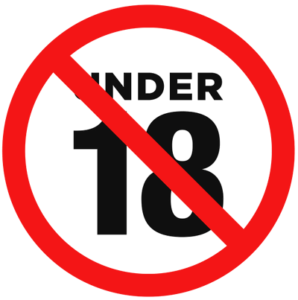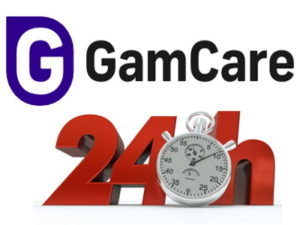Gambling Firms Agree To Measures For Safer Gambling With 5 Pledges
 Every week seems to come with a new story about people with gambling problems not being properly protected by the industry, which in turn has led to regulators taking a closer look at how companies are operating.
Every week seems to come with a new story about people with gambling problems not being properly protected by the industry, which in turn has led to regulators taking a closer look at how companies are operating.
Just this week the shares in numerous gambling companies took a hit when MPs in a cross-party group announced that they thought the maximum stake for online betting should be reduced to £2 in order to fall in line with Fixed Odds Betting Terminals so as to help problem gamblers.
It is this poor PR that gambling firms have been suffering of late that might have led to betting companies choosing to pledge their commitment to offering safer gambling for all. After years of criticism for the betting industry around the notion that it doesn’t take the risk it poses on people seriously enough, it is a step in the right direction. The Chief Executives of 10 different gambling groups have chosen to sign their companies up to the five pledges, which will be monitored by an independent group and reported on publicly.
Who Has Signed Up?
 The first thing to do is to acknowledge which gambling companies have chosen to sign up to the five pledges. They are as follows:
The first thing to do is to acknowledge which gambling companies have chosen to sign up to the five pledges. They are as follows:
- Bet365
- William Hill
- GVC Holdings
- Flutter Entertainment
- Aspers
- Caesars
- Genting
- Playtech
- Rank Group
- Sky Betting & Gaming
 With Flutter Entertainment being the official name of the group behind Paddy Power and Betfair and GVC Holdings being responsible for Ladbrokes and Coral, it’s fair to suggest that all of the big hitters of the gambling industry have put their names on the list.
With Flutter Entertainment being the official name of the group behind Paddy Power and Betfair and GVC Holdings being responsible for Ladbrokes and Coral, it’s fair to suggest that all of the big hitters of the gambling industry have put their names on the list.
Whilst it is ostensibly in order to protect the most vulnerable people who would develop or already have gambling problems, cynics are suggesting that the CEOs of these companies are trying to avoid a situation in which the government force them to obey these rules anyway.
With Labour long having supported stricter legislation on gambling and the recent All-Party Parliamentary Group also suggesting the gambling industry should be reigned in, it’s far to say that this was a matter of them jumping before they were pushed.
What Are The 5 Pledges?
 The Chief Executives of the above companies said that they felt that their commitment to the pledges was ‘the most comprehensive set of measures from a wide group of leaders across the sector to support the UK Gambling Commission’s national strategy to reduce gambling harms’. Yet what are the actual commitments that they’ve put their names to?
The Chief Executives of the above companies said that they felt that their commitment to the pledges was ‘the most comprehensive set of measures from a wide group of leaders across the sector to support the UK Gambling Commission’s national strategy to reduce gambling harms’. Yet what are the actual commitments that they’ve put their names to?
There are five pledges at this stage and they are as follows:
- Prevent underage gambling and attempt to protect young people
- Increase support offered to people who need treatment for gambling harm
- Strengthen the codes of practice around the advertising and marketing of gambling products
- Empower and protect customers
- Promote a culture of gambling in a safer environment
Obviously cynical people would ask why these pledges are any different to the sort of things that the Gambling Commission has been trying to get betting companies to do for years, with the only real answer being the fact that they have promised to stick to the five pledges moving forward.
Who Created The Pledges?
 The commitments that have been put forward and signed up to were actually created by the betting firms themselves. The development of there pledges was facilitated by the industry-funded body the Senet Group, which was formed to promote responsible gambling standards. Whilst it is funded by the industry, supports the work of the Gambling Commission and was put together by Ladbrokes, Coral, William Hill and Paddy Power, the Senet Group is an independent body.
The commitments that have been put forward and signed up to were actually created by the betting firms themselves. The development of there pledges was facilitated by the industry-funded body the Senet Group, which was formed to promote responsible gambling standards. Whilst it is funded by the industry, supports the work of the Gambling Commission and was put together by Ladbrokes, Coral, William Hill and Paddy Power, the Senet Group is an independent body.
On the company’s website it says that it exists to ‘raise standards in the sector, supporting the Gambling Commission’s work to make services safer and fairer ensuring, in particular, that responsible gambling messages are put to players with frequency and prominence’. It’s clear, then, that the group was a good one to help facilitate the development of the pledges in order to ensure that they both make a difference and are actually achievable.
That being said, the group hasn’t always been popular with anti-gambling campaigners. The Senet Group was behind the responsible gambling campaign with the slogan ‘when the fun stops, stop’ but academics at the University of Warwickshire say that it didn’t actually make any significant difference in the fight against problem gambling. Senet Group, for their part, are currently re-thinking the campaign to make it stronger and, hopefully, more effective.
What Will Happen Now?
 A new four-year national programme aimed at educating young people has been announced. It will be delivered by the Young Gamers and Gamblers Education Trust and GamCare, two charities that were formed to assist people that have gambling problems. It will be funded by a grant of £10 million that is being supplied by the gambling industry itself.
A new four-year national programme aimed at educating young people has been announced. It will be delivered by the Young Gamers and Gamblers Education Trust and GamCare, two charities that were formed to assist people that have gambling problems. It will be funded by a grant of £10 million that is being supplied by the gambling industry itself.
Young people, their families and support workers will work with the charities in order to improve an awareness of the risks that are inherently associated with gambling. There is also going to be new codes of conduct drawn up that will be for both direct and affiliate marketing partners. It will also come into play for sponsorship activities in order to ensue that adverts and sponsorship deals do more to promote a message of safe gambling.
What Is The Industry Is Saying About It?
 The Chief Executive Officer of Flutter Entertainment, Peter Jackson, said that the commitments represent an ‘important step forward’ for the gambling sector. Flutter Entertainment, which is the new brand name of the company that owns Paddy Power and Betfair, is one of the main groups to have been involved in the push for a more concerted effort to protect problem gamblers.
The Chief Executive Officer of Flutter Entertainment, Peter Jackson, said that the commitments represent an ‘important step forward’ for the gambling sector. Flutter Entertainment, which is the new brand name of the company that owns Paddy Power and Betfair, is one of the main groups to have been involved in the push for a more concerted effort to protect problem gamblers.
Jackson said that the decision of he and follow CEOs to sign up to the pledges would ‘signal a genuine desire to ensure that acting responsibly is at the heart of our businesses’. It’s little wonder that cynics have suggest an ulterior motive, however, considering that the announcement comes off the back of a drop in share prices following the announcement of the APPG that online slots should have their maximum stake to £2 in order to follow that imposed on Fixed Odds Betting Terminals.



